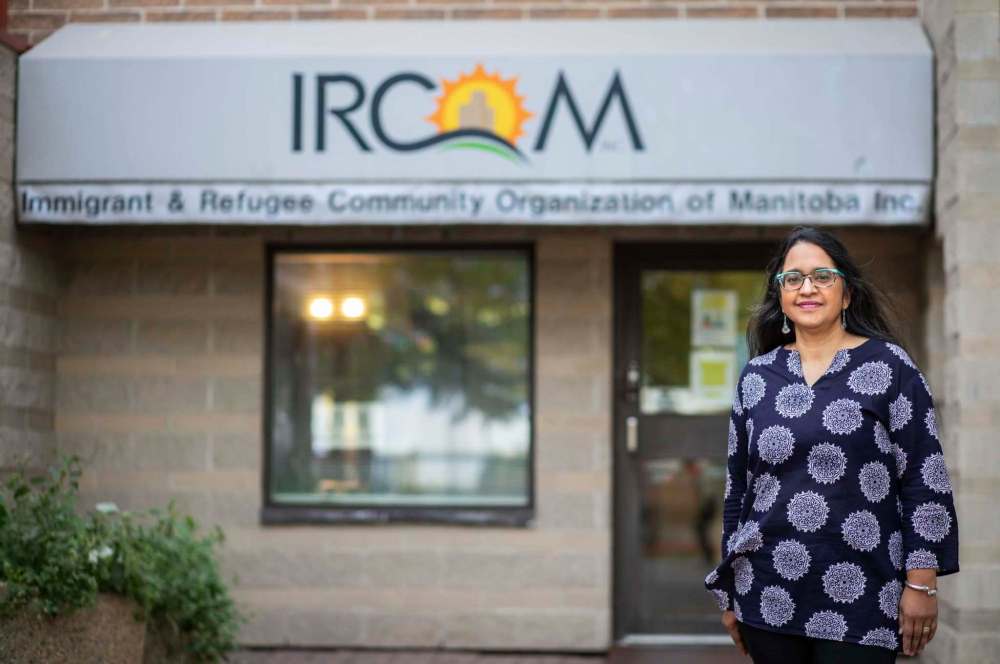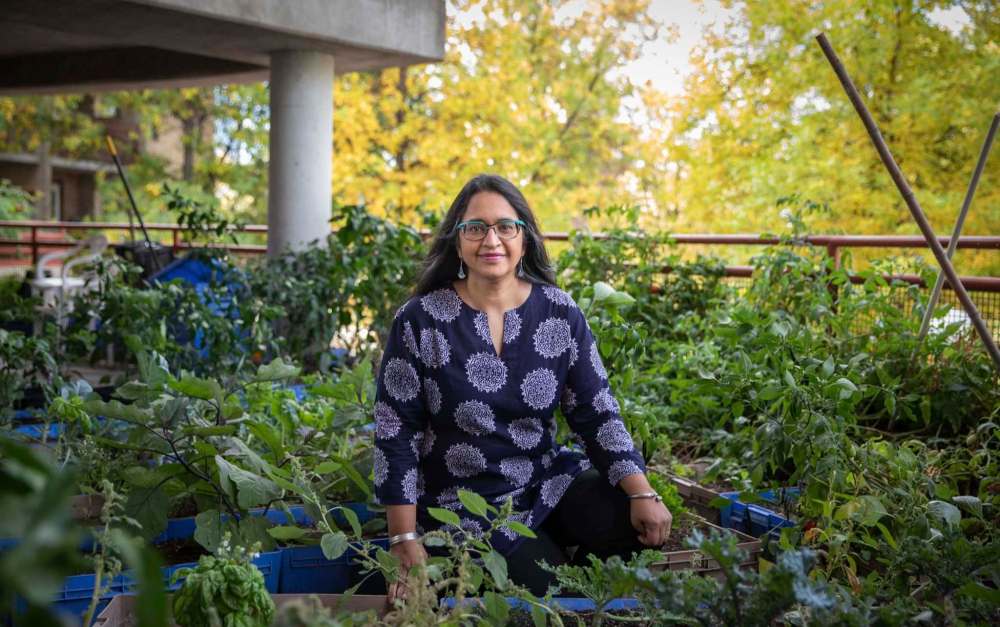Dedicated to helping newcomers
New IRCOM executive director says community success built on relationships, trust
Advertisement
Read this article for free:
or
Already have an account? Log in here »
To continue reading, please subscribe:
Monthly Digital Subscription
$1 per week for 24 weeks*
- Enjoy unlimited reading on winnipegfreepress.com
- Read the E-Edition, our digital replica newspaper
- Access News Break, our award-winning app
- Play interactive puzzles
*Billed as $4.00 plus GST every four weeks. After 24 weeks, price increases to the regular rate of $19.95 plus GST every four weeks. Offer available to new and qualified returning subscribers only. Cancel any time.
Monthly Digital Subscription
$4.99/week*
- Enjoy unlimited reading on winnipegfreepress.com
- Read the E-Edition, our digital replica newspaper
- Access News Break, our award-winning app
- Play interactive puzzles
*Billed as $19.95 plus GST every four weeks. Cancel any time.
To continue reading, please subscribe:
Add Free Press access to your Brandon Sun subscription for only an additional
$1 for the first 4 weeks*
*Your next subscription payment will increase by $1.00 and you will be charged $16.99 plus GST for four weeks. After four weeks, your payment will increase to $23.99 plus GST every four weeks.
Read unlimited articles for free today:
or
Already have an account? Log in here »
Hey there, time traveller!
This article was published 20/09/2021 (1627 days ago), so information in it may no longer be current.
In a way, it’s sort of like Shereen Denetto is coming home. But then again, she was never too far away.
For seven years, she worked at the Immigrant and Refugee Community Organization of Manitoba, helping newcomers settle into their life in Canada. She started as the organization’s programming director, and in 2015 moved up to serving as its interim, and later assistant, executive director.
Over that time, she helped oversee what she dubs the “roller-coaster” journey that was getting IRCOM’s second housing block built, a bright 60-unit building on Isabel Street. While the project encountered several unavoidable delays, she still remembers how inspired she was by the energy staff members poured into getting it done.

“When we opened those doors and the first family moved into IRCOM Isabel, it was such a beautiful moment,” she says. “The thing I really love and admire about IRCOM is the incredible dedication that our staff and our board have to the families we serve.”
In 2020, Denetto moved to the Mosaic Newcomer Family Resource Network, where she served as its director of family programs. She stayed close with IRCOM, both as a mentor to staff and as a research lead on some of its projects, so she was still closely linked to the organization.
Now, Denetto is returning to IRCOM, where she takes over as its new executive director this month.
“I’m overjoyed,” Denetto says, chatting over the phone after the hiring was announced earlier this month. “I had a great seven years at IRCOM when I was there. I really did enjoy taking a break, but I’m very glad to be back.”
She returns to the organization at a time of both celebration and challenge. On the former front, IRCOM is marking its 30th anniversary this year, with events planned for October; on the latter end the province is bracing for a fourth pandemic wave that is ravaging Saskatchewan and Alberta.
COVID-19 has posed particular challenges to the families IRCOM serves. Marginalized groups were often left out of initial communication efforts, Denetto says; newcomer families had difficulty getting clear information about what COVID-19 was, how public health restrictions would impact their lives and, later, how to access vaccines.
Denetto helped launch a vaccine awareness group in January that fostered discussions between health officials, those who work with newcomers and representatives from newcomer communities. Those meetings helped shape improvements to outreach and communication, and smooth out vaccine access.
“The very first meeting, many of (the health officials) said, ‘I’ve never heard this before’ when we talked about the barriers, the gaps in need,” Denetto says. “That group is really involved so that anyone, regardless of immigration status, could access the vaccine.”
There are still pandemic challenges on the horizon, depending on what happens in the fourth wave. The pandemic highlighted a technological divide in terms of who can access what they need to work or learn remotely; if there are four kids in a family, Denetto points out, they would need four devices. IRCOM is looking to narrow that gap.
Then there’s the matter of supporting families’ mental health, which Denetto says has been a “big issue” throughout the pandemic. IRCOM is continuing to work with local ethnocultural groups to build knowledge about vaccines.
“They have that direct relationship, and trust in their communities, so supporting them to be able to go out and do outreach and leverage all that trust and relationship is important,” Denetto says. “I saw people change their minds (on vaccination) right away once they saw good information coming from a trusted source.”

Now, looking ahead to the future of IRCOM, Denetto is brimming with ideas. The organization is working on training spokespeople who can work with media and community groups to give voice to the issues facing newcomers; that’s part of a larger vision, she says, of getting to the underlying causes of those challenges.
She also hopes to see IRCOM develop even closer relationships in the grassroots communities it serves, including building relationships between Indigenous and newcomer neighbours. While IRCOM has always been involved in social justice, Denetto sees opportunities to do even more advocacy to confront racism and discrimination.
“It’s about social integration, it’s about economic integration, but we can’t ignore this layer of racism that happens as people settle and integrate,” Denetto says.
Overall, she says, she’s excited about the future of IRCOM, one in which she sees the organization becoming even more diverse and more representative of the families it serves.
“IRCOM has a really holistic model,” Denetto says. “We want to look after people from the newest baby born into the family, to parents sponsored to reunify with the family. Holistic means supporting them, whether it’s in health, learning language and just understanding the culture. We have wonderful programs for parents and youth alike.
“At the heart of it are relationships and trust. When you have relationships and trust, the model is very successful.”
melissa.martin@freepress.mb.ca

Melissa Martin
Reporter-at-large
Melissa Martin reports and opines for the Winnipeg Free Press.
Every piece of reporting Melissa produces is reviewed by an editing team before it is posted online or published in print — part of the Free Press‘s tradition, since 1872, of producing reliable independent journalism. Read more about Free Press’s history and mandate, and learn how our newsroom operates.
Our newsroom depends on a growing audience of readers to power our journalism. If you are not a paid reader, please consider becoming a subscriber.
Our newsroom depends on its audience of readers to power our journalism. Thank you for your support.

